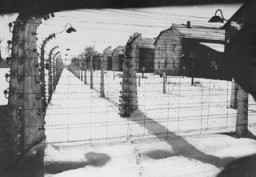You searched for: jewish prisoners
<< Previous | Displaying results 341-350 of 455 for "jewish prisoners" | Next >>
-
Helga Leeser
ID CardThe older of two sisters, Helga was raised by prosperous, non-religious Jewish parents in the small Catholic town of Duelmen in western Germany. Her family owned a linen factory. Before marrying Helga's much older father in 1927, her mother had been a Dutch citizen. As a child, Helga looked forward to vacations in the Netherlands with its comparatively relaxed atmosphere. 1933-39: At age 6 Helga began attending a Catholic elementary school. Antisemitism wasn't a problem until the night of November 9, 1938…
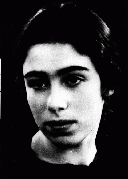
-
Le Chambon-sur-Lignon
ArticleFrom 1940 to 1944, Le Chambon-sur-Lignon and neighboring villages provided shelter to some 5,000 people, among them Jews fleeing persecution.
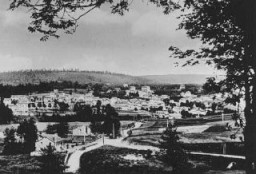
-
The Vélodrome d'Hiver (Vél d'Hiv) Roundup
ArticleThe Vélodrome d'Hiver (or Vél d'Hiv) roundup was the largest French deportation of Jews during the Holocaust. It took place in Paris on July 16–17, 1942.
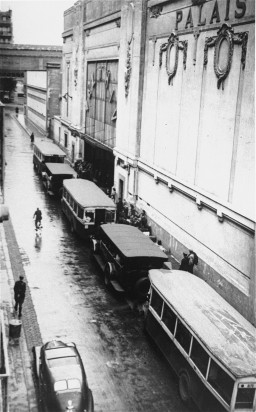
-
Adolf Hitler: 1924-1930
ArticleUnder Adolf Hitler, the Nazi regime was responsible for the mass murder of 6 million Jews and millions of other victims. Learn about Hitler in the years 1924-1930.
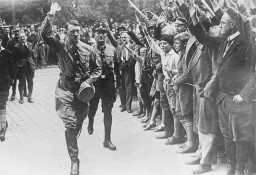
-
Maria Orlicka
ID CardMaria was born to a poor family in the industrial town of Jaworzno, not far from Krakow, in southwestern Poland. Both of Maria's parents worked. Like her parents, Maria was baptized in the Roman Catholic faith. 1933-39: Maria took care of the house when her parents were working. She was 11 years old when the Germans invaded Poland on September 1, 1939. German troops reached Jaworzno that same month. Jaworzno was in an area of Poland that became formally annexed to Germany. 1940-44: The Germans arrested…
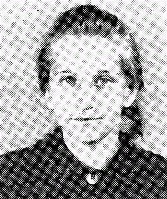
-
Wladyslaw Piotrowski
ID CardWladyslaw was born to Catholic parents in Russian-occupied Poland. He grew up in Plock, a town located in a rural area north of Warsaw. Wladyslaw married in 1918 and he and his wife, Marie, raised four children. 1933-39: Wladyslaw worked as a bookkeeper, and then as an accountant for a local farmers' cooperative. In 1931 he was sent to the town of Wyszogrod to close a failing branch of the farmers cooperative. A year later, he organized a new, successful cooperative in Wyszogrod with local farmers and…
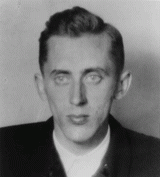
-
Irene Weber describes how obtaining a work card could offer protection from deportation
Oral HistorySeparated from her family, Irene was deported from the Sosnowiec ghetto to the Gleiwitz camp in March 1943. After a death march and an attempted escape from a transport out of Gleiwitz, Irene was imprisoned in Prague, then Theresienstadt, where as a political prisoner she was sentenced to death by starvation. For the five months before liberation, she shared a cell with 59 ailing women. Irene was the sole member of her Jewish family to survive the war.
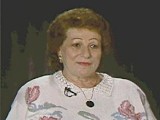
-
Elie Wiesel: Days of Remembrance excerpts
ArticleExcerpts from Elie Wiesel's addresses during US Holocaust Memorial Museum Days of Remembrance commemorations in 2001, 2002, 2003, and 2004.
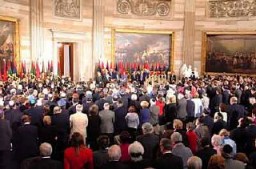
-
Raoul Wallenberg and the Rescue of Jews in Budapest
ArticleSwedish diplomat Raoul Wallenberg led an extensive rescue effort during the Nazi era. His work with the War Refugee Board saved thousands of Hungarian Jews.
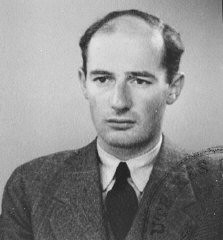
-
International Holocaust Remembrance Day
ArticleJanuary 27, anniversary of the liberation of Auschwitz, is designated by the United Nations General Assembly as International Holocaust Remembrance Day (IHRD).
